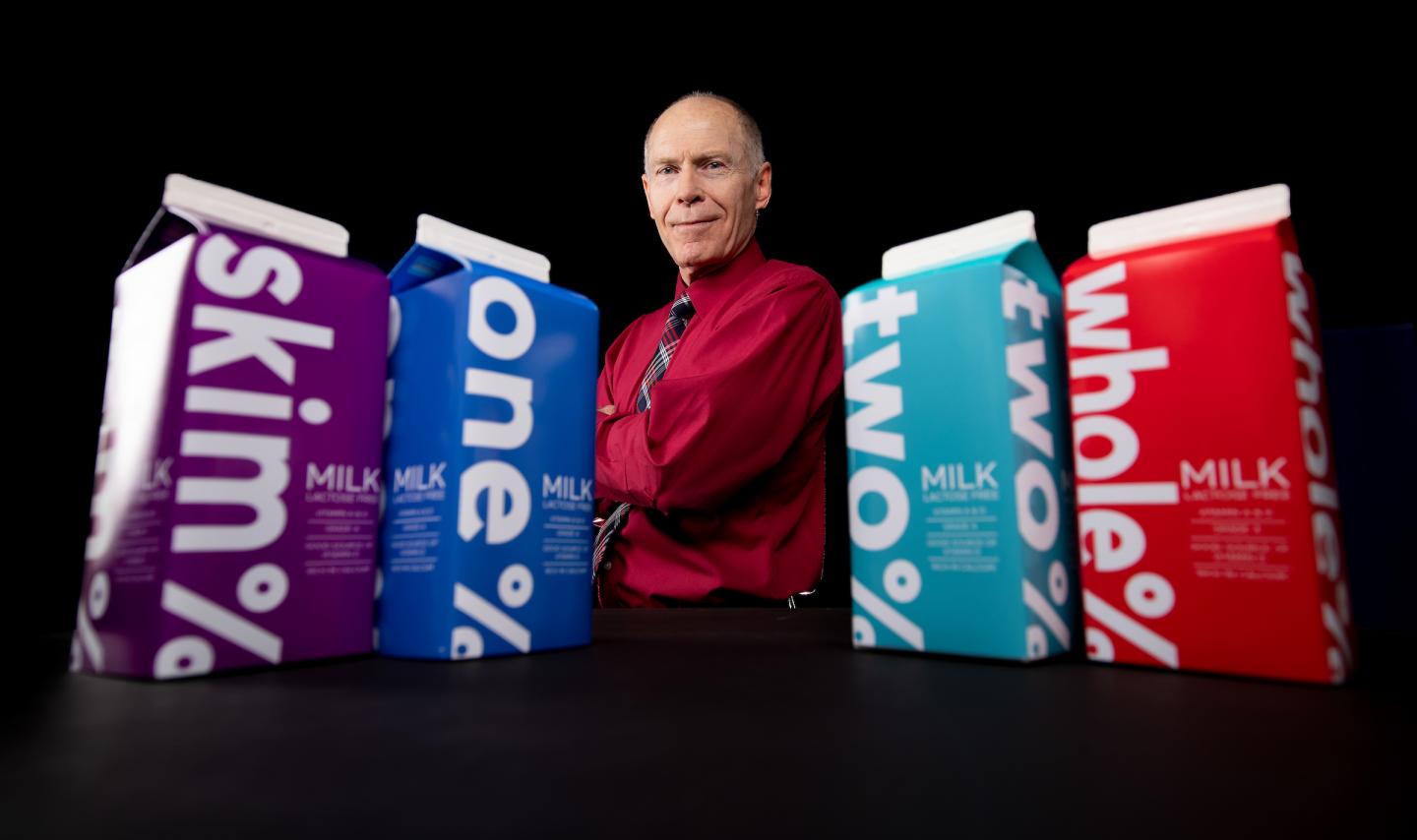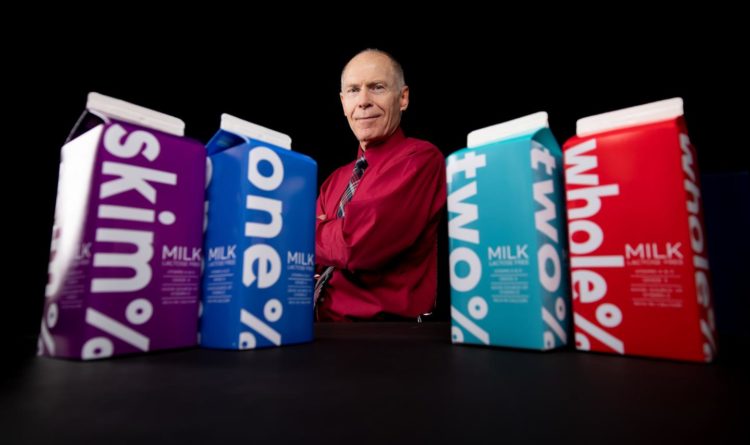High-fat milk consumption is connected to significantly shorter telomeres

Credit: Jaren Wilkey/BYU Photo
A new study shows drinking low-fat milk — both nonfat and 1% milk — is significantly associated with less aging in adults.
Research on 5,834 U.S. adults by Brigham Young University exercise science professor Larry Tucker, Ph.D., found people who drink low-fat milk experience several years less biological aging than those who drink high-fat (2% and whole) milk.
“It was surprising how strong the difference was,” Tucker said. “If you’re going to drink high-fat milk, you should be aware that doing so is predictive of or related to some significant consequences.”
Tucker investigated the relationship between telomere length and both milk intake frequency (daily drinkers vs. weekly drinkers or less) and milk fat content consumed (whole vs. 2% vs. 1% vs. skim). Telomeres are the nucleotide endcaps of human chromosomes. They act like a biological clock and they’re extremely correlated with age; each time a cell replicates, humans lose a tiny bit of the endcaps. Therefore, the older people get, the shorter their telomeres.
And, apparently, the more high-fat milk people drink, the shorter their telomeres are, according to the new BYU study, published in Oxidative Medicine and Cellular Longevity. The study revealed that for every 1% increase in milk fat consumed (drinking 2% vs. 1% milk), telomeres were 69 base pairs shorter in the adults studied, which translated into more than four years in additional biological aging. When Tucker analyzed the extremes of milk drinkers, adults who consumed whole milk had telomeres that were a striking 145 base pairs shorter than non-fat milk drinkers.
Nearly half of the people in the study consumed milk daily and another quarter consumed milk at least weekly. Just under a third of the adults reported consuming full-fat (whole) milk and another 30 percent reported drinking 2% milk. Meanwhile, 10% consumed 1% milk and another 17% drank nonfat milk. About 13% did not drink any cow milk.
“Milk is probably the most controversial food in our country,” Tucker said. “If someone asked me to put together a presentation on the value of drinking milk, I could put together a 1-hour presentation that would knock your socks off. You’d think, ‘Whoa, everybody should be drinking more milk.’ If someone said do the opposite, I could also do that. At the very least, the findings of this study are definitely worth pondering. Maybe there’s something here that requires a little more attention.”
Somewhat surprisingly, he also found that milk abstainers had shorter telomeres than adults who consumed low-fat milk.
Tucker said the study findings provide support for the current Dietary Guidelines for Americans (2015-2020), which encourage adults to consume low-fat milk, both nonfat and 1% milk, and not high-fat milk, as part of a healthy diet.
“It’s not a bad thing to drink milk,” Tucker said. “You should just be more aware of what type of milk you are drinking.”
###
Media Contact
Todd Hollingshead
[email protected]
801-422-8373
Original Source
https:/
Related Journal Article
http://dx.





